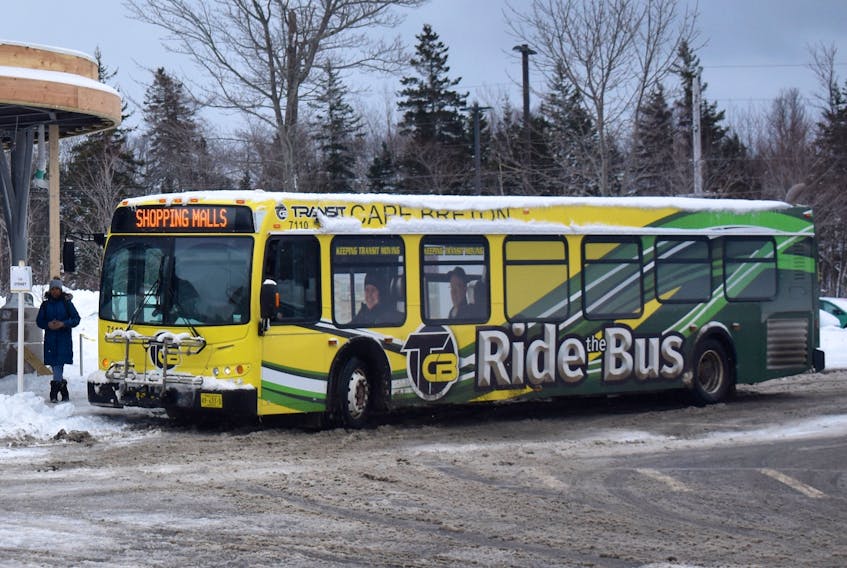SYDNEY, N.S. — There’s a buzz coming out of city hall that Cape Breton Transit’s growing fleet of buses may someday be electrified.
Word that the Cape Breton Regional Municipality has applied to be part of an electric vehicle feasibility study and pilot project surfaced Monday during a Municipal Climate Change Action Plan update workshop at the civic centre.
And, while the electric bus initiative was just one of many topics discussed at the workshop it merits attention as the CBRM’s transit service continues to experience an unprecedented increase in ridership.
Public works director Wayne MacDonald confirmed that ridership has gone up by almost 400 per cent over the past three years. He said 2017 figures show that about 350,000 rides were taken on the municipal transit service, while final 2019 numbers were projected to be close to 1.2-million riders.
Ken LeBlanc, an Efficiency Nova Scotia energy expert assigned full time to the CBRM, said the increased ridership resulted in a fuel cost increase of only 10 per cent. But he said it appears the electricity-driven bus is the vehicle of future public transportation.
“The prices (of electric vehicles) are coming down extremely quickly, especially buses, and I think they are really the thing of the near future — the cost of buses is coming down and battery-wise, the technology has increased a lot over the past five years,” said LeBlanc.
“It’s in the full life-cycle costs that we’ll really see the savings — capital costs are going to be more, but the fact is it costs a lot less to operate those than it does the diesel buses.”
Nova Scotia Energy Minister Derek Mombourquette, who spoke at the workshop, said the province is onside with the municipality when it comes to the switch to electric buses.
“We are talking to CBRM staff about the electrification of their fleet, what that looks like from a public works perspective and what it looks like from a transportation perspective,” said the Sydney-Whitney Pier MLA who once served as a CBRM councillor.
“It’s amazing to see the ridership and how it has grown and I think the CBRM is in a unique position because we’re building that infrastructure now and as we are building it we should be greening it.”
Mayor Cecil Clarke said he believes the municipality can take the lead and help turn on the switch to public transit fleet electrification in eastern Canada.
“We just don’t want to do something token with the electric bus, we actually want to be a leader for Atlantic Canada, so we signed up to be part of a fully-integrated Atlantic Canada pilot that the CBRM can be working on with the province,” said Clarke.
CBRM fleet and transit manager Kathy Donovan noted that while the public service is enthusiastic about electricity-powered buses, it has already been working toward making its fleet greener and more fuel efficient.
“The last few purchases we made were buses that are more fuel efficient and emit less emissions than earlier models,” said Donovan, who added Cape Breton Transit is already working with the province to identify the best path to move forward on when it comes to making the switch to an electric fleet.
Cape Breton Transit presently operates a fleet of 30 diesel-fuelled buses and nine gas-powered Handi-Trans vehicles.
RELATED:









